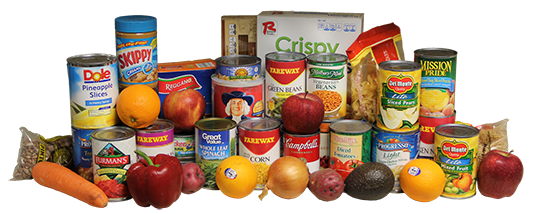Why Sustaining Your Neighborhood Food Kitchen Is Essential for Assisting Those in Demand
The relevance of sustaining neighborhood food pantries can not be overstated, particularly in the context of food instability, which affects a startling number of individuals and families within our neighborhoods. As we discover the diverse role of food pantries, it comes to be evident that their impact expands far past simply distributing food.
Recognizing Food Insecurity
Food instability influences roughly 10.5% of families in the United States, highlighting a considerable public health and wellness concern that transcends simple appetite. It refers to the lack of constant access to sufficient food for an active, healthy life. This problem can cause an array of adverse end results, consisting of inadequate health, raised health care prices, and lessened academic performance amongst kids.
The sources of food instability are diverse, frequently coming from economic aspects such as underemployment, hardship, and unemployment. Geographical area can also play a vital function, with food deserts-- areas with restricted accessibility to economical and nutritious food-- intensifying the issue - Food Pantry Lockhart. Additionally, systemic elements, consisting of racial and social inequities, add to the disproportionate impact of food insecurity on marginalized areas
Attending to food insecurity is not just concerning raising food supply; it needs a detailed technique that incorporates economic stability, education, and area support. Food instability not just influences individual health however additionally has more comprehensive effects for social wellness and performance. Recognizing its intricacy is essential for creating effective treatments and cultivating lasting options that guarantee all individuals have trusted accessibility to healthy food.
The Duty of Food Pantries
Regional food cupboards work as critical lifelines for people and households encountering food insecurity. They give essential food things to those who might struggle to pay for adequate nutrition as a result of economic hardship, joblessness, or unanticipated scenarios. By dispersing food at no cost, these companies help ease appetite and prevent the adverse wellness impacts connected with insufficient diet plans.
Food kitchens often partner with neighborhood farms, grocery store shops, and area companies to resource a selection of nutritious food products, consisting of fresh fruit and vegetables, dairy, and healthy proteins. This collaboration guarantees that kitchen customers receive not only nourishment however likewise healthier options that add to total wellness.
Furthermore, food pantries function as neighborhood hubs, fostering connections amongst homeowners and offering a feeling of self-respect to those in need. Numerous pantries provide extra resources, such as nourishment education and learning and recommendations to social services, aiding customers navigate their difficulties better.
Basically, food cupboards play a multifaceted function in combating food insecurity. They not just address prompt cravings but additionally encourage households and individuals to enhance their circumstances, consequently promoting area strength and cohesion.

Benefits of Sustaining Food Pantries

Sustaining food kitchens not only nourishes those in need yet also enhances the fabric of the community. By providing important food resources, food cupboards minimize appetite and minimize food instability, which is important for the health and well-being of individuals and households. Access to nourishing food adds to enhanced physical health and wellness, much better educational results for kids, and improved mental health and wellness, therefore cultivating a more productive and engaged community.
In addition, supporting food kitchens promotes social cohesion. These organizations work as centers for community involvement, uniting volunteers, donors, and receivers in a shared goal to fight cravings. This partnership can break down obstacles, foster visit here understanding, and construct connections among varied Bonuses area participants.
In addition, contributions to food cupboards, whether in the type of food, funds, or time, boost the local economic climate. Lots of food pantries focus on sourcing from regional producers, hence supporting regional agriculture and companies. This creates a cycle of assistance that benefits not just those in demand however the neighborhood overall.
Exactly How to Obtain Involved
Involvement with food cupboards can take numerous types, allowing individuals and groups to make a meaningful effect in their areas. Among the most direct ways to get entailed is by contributing food things. Non-perishable items such as canned goods, pasta, and rice are constantly popular. Monetary donations are also invaluable, as they enable food kitchens to buy fresh produce and vital materials.
Offering your time is one more impactful method to sustain local food kitchens (Food Pantry Lockhart). In enhancement, think about organizing food drives within your school, area, or work environment group to increase understanding and gather sources.
Partnerships with local businesses can additionally improve support for food kitchens. By taking these teams, actions and people can substantially boost the efforts of regional food pantries and assist those in need.
Area Influence and Connection
Recognizing the profound influence of food kitchens on neighborhood wellness is vital for fostering a spirit of connection and partnership. Food pantries serve not just as vital sources for those dealing with food instability however also as centers for area engagement. They unite varied groups-- benefactors, clients, and volunteers-- creating a setting where individuals can support and attach each other.
The effect of food pantries extends beyond mere arrangement of food; they function as a driver for social communication. By participating in cupboard initiatives, neighborhood participants can establish relationships that transcend socioeconomic obstacles. This network of support helps to take down the preconception often related to food assistance, fostering an environment of acceptance and understanding.
Additionally, food cupboards usually team up with neighborhood companies, colleges, and companies, enhancing their reach and efficiency. These collaborations enhance neighborhood resilience and urge a collective response to food insecurity. As people join in their her latest blog efforts to sustain neighborhood food cupboards, they cultivate a sense of shared objective and obligation, enhancing the concept that everyone has a duty to play in guaranteeing that no one goes starving. Eventually, sustaining food kitchens reinforces the material of the neighborhood overall.
Conclusion
Sustaining local food cupboards is important in combating food instability and boosting the health of prone populaces. Interaction with food pantries cultivates neighborhood links, promoting social communication and equity.
